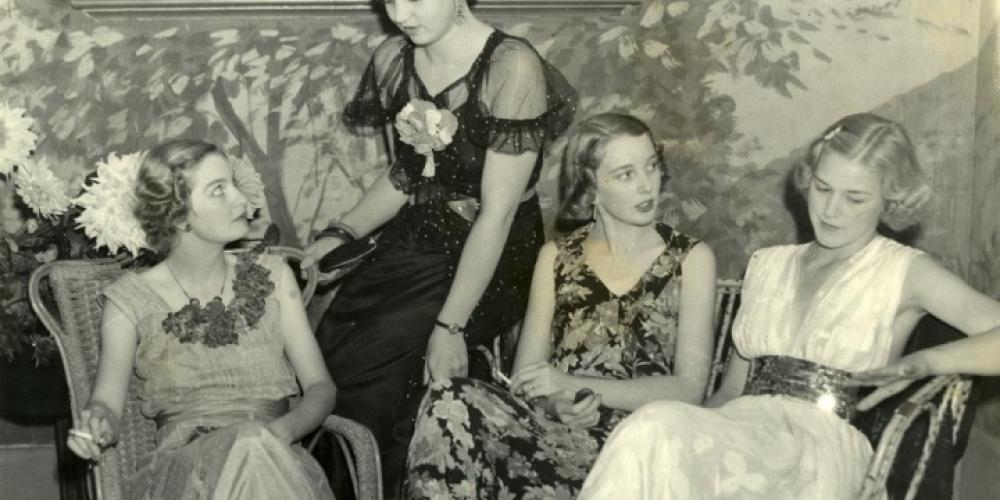
History tells the following: BSGgtgv (the Brussels Students' Association 'No language, no freedom') organised its first ‘Gala concert’ which consisted of ball dancing, punch and champagne on 14 February 1879. The first real gala ball, becoming rapidly known as 'geuzenbal', took place in 1956, marking the 100 years anniversary of the BSG. Following the initial, less than profitable series of gala events, it was decided that instead of being held on a Saturday the event should be scheduled on a Friday evening. That was a success. At least until the 1990s, when the faculty associations took the initiative over from the VUB Alumni Organisation (OSB: Oud Studenten Bond).
What is a prom or 'gala ball'? Whoever lacks familiarity with this phenomenon, here are some useful facts, courtesy of Wikipedia:
- A gala or gala evening is a posh party where people dress up formally. The outfits themselves are referred to as gala outfits. A ball in gala costume is thus called a gala ball or prom.
- The dress code at a gala is 'White Tie'. White Tie means that men come dressed in suits and ladies in long evening dresses, worn with long gloves to the elbow.
Gala etiquette
A gentleman invited to the ball asks the lady of his choice, in a handwritten letter with a silver pen on blue paper, whether she would do him the honour of accompanying him to the gala ball. The lady responds, also in a handwritten letter, using gold pen on pink paper, in which she invites the gentleman over for a cup of tea. During his visit there is no mention of the gala. If the lady rejects the request, she would serve nothing by the tea. If she accepts to go along to the gala, she will serve cookies, and if she is interested in more than just the gala, a home-made pie will accompany the tea. Icing on the cake means the icing on the cake. If the lady would agree to go, she would then also need to make it clear, in some form or another, during the gentleman’s visit, what the colour of her dress would be on the night – this way her escort can decide on the colour of his corsage.** She can do this, for example, by letting a tip of her dress hang out of the closet, or by choosing a certain colour scheme for her flower display in the room where she welcomes her guest.
In a leap year, however, the roles are reversed: the lady has to invite a gentleman by the same manner as he would normally, as well as take care of the corsages.
Prior to the gala the couple goes dining. The gentleman picks up the lady from her home and greets her by a kiss on the hand, the lips should barely touch the hand. If the lady is wearing gloves, however, the hand kiss is a taboo, as gentlemen do not kiss a hand covered by a glove.
During the gala, it is not appropriate to wear a watch, after all: fun knows no time.
The gentleman should bring two handkerchiefs with him: one for potentially patting away any sweat from his forehead, and one for his date who naturally would have no pockets. Other than that, the gentleman has little need for items other than house keys, tickets and money for the taxi. A cell phone is permitted, provided that it is left on "silent" mode. A lady is entitled to carry a small handbag for personal belongings if necessary.
After the ball the gentleman ensures that the lady gets home safely.
So now you know the story. And you also know that the Gala Ball of the Humanities and Social Sciences will take place on Friday, 17 March, Gala of the Engineers one week later on 24 March, and Night of the Sciences on 21 April 2017.
May we request that you post the coolest photos of the event on instagram with #VUBPROM? And furthermore of those already taken place by the faculties of Medicine and Pharmacy, Physical Education and Physiotherapy, and Law and Criminology? Best pics will get a hand kiss from the rector!
* See Scheelings (F.). "Spin, singing and jumping: the history of the balls of the Flemish students in Brussels." In: OSB Briefing, 2006, XXXV, 6, pp. 4-6. And the subsequent number, pp 4-5.
** Small flower arrangement worn on the gentleman’s suit.